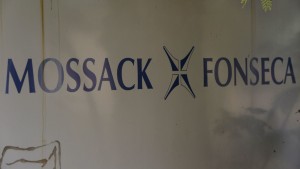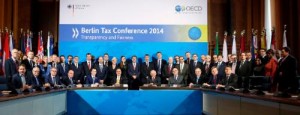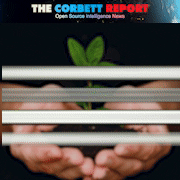
TheInternationalForecaster.com
April 5, 2016
Pop quiz. Who said the following sentence about the new Panama Papers leak of information from Mossack Fonseca that was made public to such great media fanfare this week:
“Even though it’s not surprising, it helps us.”
Well, it certainly wasn’t the Chinese government. They just published an article through their Global Times mouthpiece called “Powerful force is behind Panama Papers” that asks the obvious question: who is behind this leak and who benefits from it?
“The Western media has taken control of the interpretation each time there has been such a document dump, and Washington has demonstrated particular influence in it. Information that is negative to the US can always be minimized, while exposure of non-Western leaders, such as Putin, can get extra spin.
“In the Internet era, disinformation poses no major risks to Western influential elites or the West. In the long-run, it will become a new means for the ideology-allied Western nations to strike a blow to non-Western political elites and key organizations.”
And it certainly wasn’t Sigmundur David Gunnlaugsson. The embattled Icelandic Prime Minister is facing nationwide protests and calls for his resignation as top political figures hold emergency talks to discuss the future of Gunnlagsson’s government and the opposition lodges a vote of no confidence in the PM.

It wasn’t even the US Treasury Department, which (gosh darn, wouldn’t you know it) chose today of all days to unveil a new set of rules meant to stop companies from spoofing the system in order to lower their taxable earnings in the States…although the fresh worldwide wave of indignation over shell company-creating, tax-evading millionaire fat cats certainly doesn’t hurt the treasury in their quest.
No, it was Wolfgang Schauble, German Finance Minister, and here is the full context of the quotation, taken from a Bloomberg article about the Panama Papers:
Policy makers including German Finance Minister Wolfgang Schaeuble and European Commission Vice President Jyrki Katainen said the leak will strengthen the resolve of governments to combat tax avoidance and evasion, something that’s been on the agenda of international forums such as the Group of 20 for years.
“Even though it’s not surprising, it helps us,” Schaeuble said in Berlin late Monday. “It increases the pressure to halt abuse.”
As I pointed out yesterday, this latest data dump (or, more accurately, data tease, with less than 200 of the 11.5 million documents so far having been made available to the public) is going to give a shot in the arm to the OECD and the G20, who have been working behind the scenes for years now to create a new global tax grid that will see your personal banking details (right down to your balance) shared in an inter-governmental database.
The justification that has been given for this all-seeing banking panopticon is that these governments need to have access to all of your banking information anywhere on the planet in order to crack down on tax evaders and money launderers. But, as Schauble and his cronies know all too well, this just happens to be the very mechanism that needs to be in place before the first truly global tax can be implemented.

The total number of signatories to the agreement now stands at 80 countries, including many of the most notorious international tax havens like the British Virgin Islands, the Cayman Islands and Seychelles. Notably missing from the list: Panama. Such is the hand-wringing over this glaring omission that the globalist mouthpiece The Economist was forced to write a hit piece dedicated to shaming Panama for its refusal to play ball.
And now that we are just months from the beginning of the implementation of this new global information-sharing agreement, along comes the perfect gift-wrapped present for those wishing to get the rest of the world on board with the agenda. In the end it doesn’t even matter if this was a deliberate intelligence operation or a genuine leak; it has certainly worked out well for Schauble, Katainen and the other gaggle of globalists that want complete insight into every transaction taking place in every corner of the planet.








FYI: … according to a recent investigation by Bloomberg, “The World’s Favorite New Tax Haven Is the United States” … (for non-US citizens, that is and this is not new, it has been for decades)